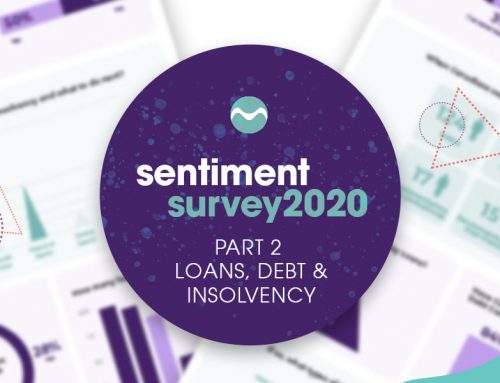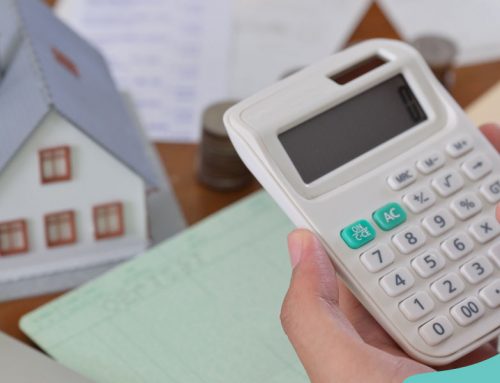Whether you are trying to buy a house, make a large purchase, start a business, or cover a financial emergency, a loan can be a great tool as it allows you to spread out the cost into affordable payments. While many consumers should have no trouble getting approved for a loan, those with a bad credit score may be wondering if it will hinder their chances of approval.
What is Considered a Bad Credit Score?
In Canada, your credit score can range between 300 and 900. Depending on where your credit score falls on this spectrum, your score may be seen as anything from poor to excellent, as seen in the table below.
| Poor | 300 – 560 |
| Fair | 560 – 660 |
| Good | 660 – 725 |
| Very Good | 725 – 760 |
| Excellent | 760 – 900 |
The higher your score, the more financially responsible you will look not only to potential lenders but employers, landlords, and other individuals or companies who you enter into a financial contract with. Moreover, having a good credit score comes with a number of perks including better rates, terms, and easier approvals.
Can You Get a Loan with Bad Credit?
There are many alternative lenders in Canada who cater to individuals with bad credit. The majority of these lenders exist online with few having physical locations. In fact, the entire loan application process for bad credit loans is usually conducted online, right from the application form to the funding. These lenders often base their approvals on other aspects of your financial health, rather than your credit score. Some of the most common factors evaluated are your:
- Income level – To qualify for a loan, you’ll have to have a source of income. The amount required per month varies by lender and loan type.
- Employment stability – If you have an unstable employment history, lenders will be less likely to approve you for a loan. Most require you to be employed for at least 3 months before considering your application.
- Debt-to-income ratio – Lenders will often check how much of your income goes toward your current debts to see if you can afford another loan.
Can I Get a Loan with Bad Credit From a Credit Union?
While Credit Unions do provide loans to individuals with bad credit, you must first become a member of the credit union to be eligible. Unfortunately, members are accepted based on criteria that are hard to control such as your location or your distance to the credit union, the company you work at, labour unions you are a part of, etc. Moreover, the application process and funding time can be much slower than alternative lenders, which means you may not receive your funds in time during a financial emergency.
Pros and Cons of a Bad Credit Loan
Pros
- Fast and easy application. One of the greatest advantages of getting a bad credit loan is the fast application process. You can complete the entire application online from the comfort of your home and get funded within a couple of days after applying.
- Flexible Repayment schedule. Most alternative lenders understand that their clients come from a variety of different financial backgrounds. This is why many offer flexible repayment options so that you can comfortably pay off your loan.
- Eligibility is based on more than just your credit score. Unlike banks, alternative lenders consider a wide range of factors to determine whether you qualify for a loan. But having a good credit score will really help.
Cons
- Expensive. The main reason Canadians prefer banks over alternative lenders is that they offer better rates. Alternative lenders charge higher rates due to the increased risk they take by lending to individuals with less than perfect credit histories.
- Fees. Alternative lenders often charge fees that can make your loan more expensive including origination fees, administrative fees, prepayment fees, late fees, and more.
How Do I Increase My Chances of Getting a Loan With Bad Credit?
Get a Guarantor
A guarantor loan involves having someone cosign your loan and thus take on the responsibility of making your payments in case you are unable to. The guarantor usually has to have a good credit score or provide an asset as collateral to be considered as a guarantor. If you have a family member or friend who is willing to be a guarantor, you’ll have a much easier time being approved for a loan. A guarantor loan is also a good option if you’re looking for better rates and terms.
Secure Your Loan With An Asset
Borrowing against an asset is a sure-fire way of qualifying for the loan you need. By putting up an asset as collateral, the lender will be protected in the event you default on your loan. While this may be a riskier option for you, it will help you qualify for a loan a lot faster and easier.
Increase Your Credit Score
While this may seem like an obvious solution, it can be extremely difficult to accomplish when you don’t have the right information. Understanding how your credit score is calculated can provide you with direction and measurable actions you can take to improve your credit score. These are the five factors your credit score is comprised of:
- History of payments (35%). Are you making all of your payments on time and in-full? This is the first step all bad credit consumers should take. It’s as simple as that, make your payments on time and your score should improve over time.
- Credit utilization ratio (30%). Do you know what your credit utilization ratio is? You can calculate is by finding our what percentage of your credit limit you’ve used. Using over 30% of your total limit has a negative impact on your credit score. If you need to use up more than 30% of your credit limit regularly, pay off your credit card balance twice a month or ask for a limit increase.
- Credit length (15%). Do you open and close credit accounts often? Cancelling old accounts can affect your credit length, which accounts for 15% of your credit score. The longer you’ve had your credit accounts open, the better.
- New inquiries (10%). Opening many new accounts, especially within a shorter period of time, for example, 6 months, can affect your credit negatively, as each inquiry will drop your credit score by a few points.
- Credit diversity (10%). Do you have a mortgage? A credit card? A line of credit? As you gain a variety of credit products, the more it will improve your credit score. Just keep in mind that taking on unnecessary debt to try to improve your credit score is never a good idea.
Is a Bad Credit Loan Right For You?
Having bad credit can make it difficult to qualify for a loan, but as mentioned, it is not impossible. If you’re in need of a loan but are unable to qualify with a traditional bank, a bad credit loan through an alternative lender is a good option. While they can be more expensive than traditional banks, they offer their own perks such as faster funding and easier approvals. Always make sure you research a lender before you apply. It’s important to arm yourself with the information you need to choose the best lender based on your needs and to avoid any potential loan scams.
Written by Caitlin from Loans Canada | Contributing Writer for Marble Financial






